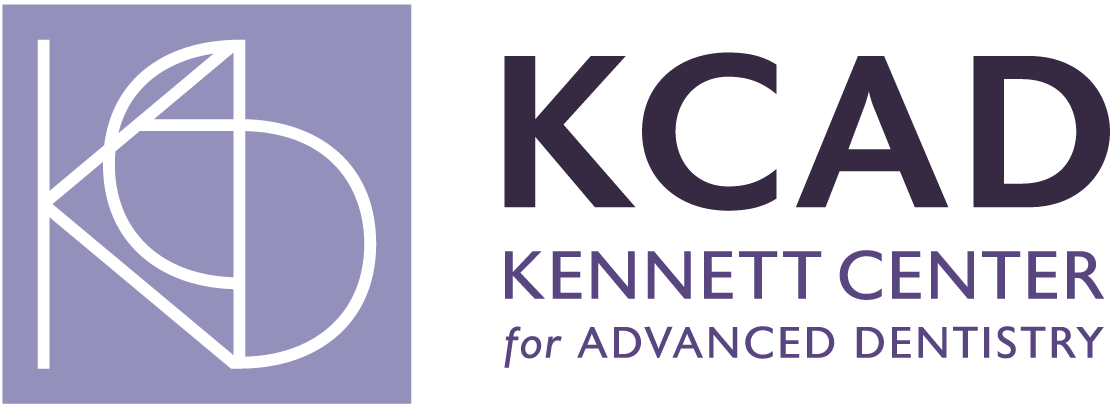Gross Debridement Cleaning
Restore Your Oral Health and Smile
When you think about dental hygiene, regular brushing, flossing, and biannual checkups probably come to mind. But sometimes, despite our best efforts, a deeper level of cleaning is needed to maintain optimal oral health. This is where gross debridement cleaning comes in.
Our Kennett Square, PA, dentist breaks down what gross debridement cleanings are and when a patient may need one. If you’re ready to make an appointment, contact us at 610-444-6311. We also proudly serve patients coming from West Chester, Chadds Ford, Oxford, and the surrounding areas.

What Is a Full Mouth Debridement Cleaning?
A gross debridement cleaning is a type of deep dental cleaning performed by a dental hygienist or dentist. It’s typically done when a patient has not had a dental cleaning in a long time, and there’s a significant buildup of plaque and tartar on the teeth and gums.
During a full mouth debridement procedure, the dental professional will use specialized instruments to remove the buildup of plaque, tartar, and other debris from the teeth and gums. This process may take longer than a typical dental cleaning and may be more uncomfortable for the patient due to the amount of buildup that needs to be removed.
Debridement cleanings aren’t a substitute for regular dental cleanings. It’s typically the first step in treating severe periodontal disease or when a patient has neglected their dental hygiene for a long period.
The Benefits of Gross Debridement Cleanings
There are several benefits to gross debridement cleanings, including:
- Removes plaque and tartar buildup above and below the gum line
- Helps prevent gum disease and tooth decay
- Promotes healthy gums and teeth
- Reduces inflammation
- Prevents infection and promotes healing
- Improves overall oral health and hygiene
- Helps maintain a bright and healthy smile
- Prevents the need for extensive dental procedures
When Gross Debridement Cleaning Is Necessary for Gum Disease
Deep cleaning teeth, also known as gross debridement cleaning, is typically recommended when there’s excessive plaque and tartar buildup that hasn’t been addressed through regular cleanings in many years. This can lead to periodontal disease, tooth decay, and other oral health issues.
Our dentist may recommend this type of cleaning if you have:
- Excessive plaque and tartar buildup on the teeth
- Bleeding gums when brushing or flossing
- Persistent bad breath or a bad taste in the mouth
- Swollen or tender gums
- Loose teeth or changes in the way your teeth fit together when you bite
- Receding gums or teeth that appear longer than normal
- Pus or other signs of infection around the teeth or gums
Contact today to schedule your appointment.
How a Debridement Cleaning Works
Full mouth debridement cleanings, also known as deep cleanings, involve several steps to ensure thorough cleaning of your teeth and gums. The process typically takes between one to four hours to complete and involves the following:
- Evaluation: The first step in the gross debridement cleaning process is an evaluation of your oral health. This will include x-rays and an examination of your teeth, gums, and periodontal pockets.
- Scaling: The next step is scaling, which involves the removal of plaque and tartar buildup above and below the gum line using specialized tools.
- Root Planing: Once scaling is complete, your dentist will move on to root planing, which involves smoothing out the roots of your teeth to prevent further plaque buildup.
- Antibacterial Rinse: After scaling and root planing, your dentist will use an antibacterial rinse to remove any remaining bacteria and promote healing.
- Post-cleaning evaluation: The dentist will evaluate the patient’s oral health again after the cleaning is complete to determine if additional treatments, such as fluoride treatment or periodontal therapy, are necessary. They may also provide recommendations for at-home oral hygiene care and schedule the patient for regular dental cleanings to maintain good oral health.
The process can be uncomfortable for some patients, but our dentist will use a local anesthetic to numb the area and make the procedure more comfortable.
Scaling and Root Planing
Scaling and root planing is a crucial dental procedure aimed at tackling gum disease and maintaining optimal oral health. This two-step process, often performed by a dental hygienist or dentist, involves a thorough cleaning both above and below the gum line.
Scaling is the first step, where specialized tools are used to meticulously remove plaque and tartar buildup from the teeth surfaces and beneath the gum line. This is essential in preventing the accumulation of bacteria that can lead to gum disease.
Root planing follows, focusing on smoothing out the roots of the teeth. This step is vital as it helps to eliminate rough spots on the roots where bacteria and other debris can gather, promoting a healthier gum environment and aiding in the healing process.
Typically, scaling and root planing are performed as part of a deep cleaning regimen and may require local anesthesia to ensure patient comfort. The benefits of this procedure are significant:
- Effective removal of plaque and tartar
- Prevention of bacterial buildup
- Promotion of gum healing and prevention of gum disease progression
- Reduction in the risk of tooth loss and other severe complications
By addressing the root causes of gum disease, scaling and root planing play a pivotal role in maintaining long-term oral health.
Caring for Your Teeth After Your Debridement Cleaning
After you’ve had a dental deep cleaning, you’ll want to care for your teeth and gums properly to promote healing and prevent future buildup. Here are some tips for caring for your teeth after a debridement cleaning:
- Gentle Brushing: Your gums might be sensitive after the cleaning. Use a soft-bristled toothbrush to gently brush your teeth twice a day. Ensure you are using fluoride toothpaste to protect against cavities.
- Floss Carefully: Floss once a day to remove food particles and plaque between teeth. Be gentle to avoid injuring the gums.
- Rinse With an Antimicrobial Mouthwash: Your dentist might recommend using an antimicrobial mouthwash to help reduce bacteria in the mouth. This can aid in healing and reduce the risk of infection.
- Avoid Harsh Foods: For the first day or two, avoid foods that are hard, crunchy, or spicy. These can irritate your gums or cause discomfort.
- Limit Sugary Foods and Beverages: Sugars feed the bacteria in your mouth, which produce acids that can erode enamel and cause cavities.
- Use Over-the-counter Pain Relievers: If you experience discomfort, consider taking an over-the-counter pain reliever as directed. Always consult with your dentist or doctor before starting any medication.
- Regular Dental Cleanings: To prevent the need for future debridement cleanings, schedule regular dental cleanings as recommended by your dentist. Typically, a cleaning every six months is suggested, but your dentist may have specific recommendations for you based on your oral health.
- Maintain a Good Oral Hygiene Routine: Establishing a consistent oral care routine, including brushing, flossing, and rinsing, will help prevent plaque and tartar buildup.
- Stay Hydrated: Drinking water helps in washing away food particles and bacteria and can also aid in preventing dry mouth, which can contribute to dental issues.
The Cost of a Gross Debridement Cleaning
On average, a gross debridement cleaning may cost $75 to $200. The cost will vary depending on the extent of the procedure, your dental insurance coverage, and the location of your dental practice. Check with your insurance provider to better understand your coverage and determine out-of-pocket expenses.
Insurance Considerations
Understanding your insurance coverage for scaling and root planing is essential to manage the financial aspects of this important dental procedure. Coverage can vary widely depending on your specific insurance plan and the extent of the treatment required.
Some insurance plans may cover the full cost of scaling and root planing, while others might only cover a portion. It’s crucial to check with your insurance provider to get a clear picture of your coverage and any potential out-of-pocket expenses.
Here are some key questions to ask your insurance provider:
- Is scaling and root planing covered under my plan?
- What percentage of the procedure cost is covered?
- Are there any out-of-pocket costs I should be aware of?
- Does my dentist offer financing options or payment plans?
- How frequently can I undergo scaling and root planing under my insurance plan?
In general, scaling and root planing is recognized as a necessary procedure for maintaining good oral health, and many insurance plans will cover at least part of the cost. However, it’s always best to confirm the specifics with your provider to avoid any surprises.
By understanding your insurance coverage, you can better plan for the procedure and ensure that you receive the necessary care to maintain your oral health.

Frequently Asked Questions
Is a gross debridement cleaning painful?
The gross debridement cleaning procedure itself isn’t typically painful since your dentist will numb the area with a local anesthetic. You may experience discomfort or sensitivity during and after the procedure, such as soreness or tenderness in the gums. This discomfort should subside within a few days after the procedure. If you experience any severe pain or bleeding after the procedure, contact your dentist right away.
How long does gross debridement cleaning take?
Generally, the procedure can take anywhere from 30 minutes to an hour or more. The length of time for a gross debridement cleaning procedure can vary depending on the extent of the cleaning needed and the individual patient’s oral health.
Can I get dental sedation while undergoing a gross debridement cleaning procedure?
It’s possible to receive dental sedation during a gross debridement cleaning procedure, depending on the individual patient’s needs and preferences. Your dentist can discuss your sedation options and determine the best approach to ensure your comfort during the procedure.
Discover What Our Kennett Square Dental Professional Can Do for You
Gross debridement cleanings are an important procedure for maintaining optimal oral health. If you’re experiencing excessive plaque and tartar buildup or other oral health issues, talk to your dentist about whether gross debridement cleaning is right for you. If you’re in the Kennett Square area and think you may need a gross debridement cleaning, consult with our Kennett Square, PA, dentist to determine the best course of action. We also proudly serve patients coming from West Chester, Chadds Ford, Oxford, and the surrounding areas.
